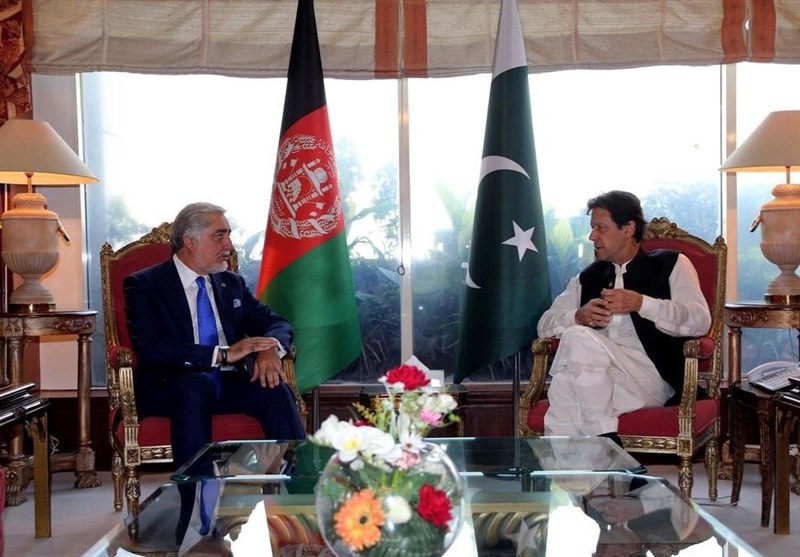Mohammad Reza Asgari Moroudi, in an interview with the website of the Strategic Council on Foreign Relations, referred to the visit of the Prime Minister of Pakistan to Kabul and consultations on helping the peace process in Afghanistan and said: The visit of Imran Khan, Prime Minister of Pakistan, to Afghanistan took place after the visit of Abdullah Abdullah, Chairman of the High Council of National Reconciliation of Afghanistan, and of Gulbuddin Hekmatyar, who called for the help in the inter-Afghan negotiations process.
Explaining the challenges facing inter-Afghan talks in Qatar and the inflexibility of the Taliban negotiating team, as well as diminishing hopes for the outcome of the peace talks, he continued: In the strategic view of Afghan officials, Pakistan plays an important role in peace developments in their country and Pakistan’s support plays an important role in the political structure of Afghanistan.
Referring to Imran Khan’s foreign policy slogan in the elections, for the development of relations with its neighbors, especially Afghanistan, the Afghan affairs expert said: Mr. Imran Khan and his government have had a positive attitude towards Afghanistan and its developments over the past two years. But it should be noted that in Pakistan’s foreign policy, in addition to the government, some institutions, including the army or its intelligence service, also play a key role in Pakistan’s foreign policy.
Pessimism, Historical Differences Prevent Advancement of Deeper Ties with Afghanistan
Emphasizing the demand of the officials of the two countries for the improvement of the relations and end to dissatisfactions, Asgari Moroudi continued: The Government of Afghanistan is trying to increase its bargaining power in the negotiations within the framework of creating a regional consensus. But it must be borne in mind that there is a kind of pessimism and historical difference in Pakistan-Afghanistan relations that has always manifested itself in the past two or three decades.
He added: What is called Pakistan’s support for the Taliban is the main reason for the differences between the two countries, and it seems that there will be no opportunity for de-escalation in the relations between the two countries until Afghanistan reaches a lasting peace and war comes to an end in that country.
Imran Khan’s recent visit to Kabul was more in the context of maintaining political relations between the two neighboring countries, the Afghan affairs expert said, adding: Given the current situation, this visit could not untie a knot in the Afghan peace talks in Qatar, as despite the talks, we are witnessing an increase in violence. However, given the growing tensions between the two countries, officials of the two sides are trying to show a sign of good relations by maintaining political relations and continue the relations with caution until there is an opportunity for dialogue to resolve the differences.
According to Asgari, under the status quo the trip should be considered as a political gesture to show good bilateral relations, and it seems that the Prime Minister of Pakistan, according to what the Afghan authorities and people expect, cannot take an effective approach to get the country out of the current problems, including the complexity of the peace talks process.
He also referred to Imran Khan’s previous statements on the need to form an interim government as a solution to the Afghan crisis and Kabul’s strong criticism of it, saying: There is a kind of historical pessimism in Afghanistan towards Pakistan and even positive actions of the Pakistani government towards the peace process from the point of view of a range of pessimists in Afghanistan is considered as a conspiracy. They have no confidence in Pakistan’s policies at all.
Asgari Moroudi described the Taliban’s transformation into a multi-sect after Mullah Mohammed Omar’s death as a factor in weakening Pakistan’s influence over the Taliban and continued: The Pakistani Prime Minister said during his visit to Kabul that ‘…more than your expectations, we will be helping you.’ The remarks show that senior Pakistani government officials are also aware of the historical pessimistic view of Pakistan and are working to correct such a pessimistic view in order to persuade the other side to maintain bilateral relations and take advantage of the potentials of influential groups in Pakistan.
He cited talks on some of Pakistan’s concerns as another target of the visit, saying that Imran Khan had said that India was planning to kill ulema and create sectarian strife in Pakistan. In recent days, Pakistani Foreign Minister Shah Mahmood Qureshi has again raised the issue of India’s use of Afghan territory for anti-security measures in Pakistan; this, of course, has been strongly denied by some Afghan officials.
Asgari added: In the atmosphere of competition and antagonism that has existed between India and Pakistan in recent decades, whenever one of the two countries moves towards development of political and economic relations with other countries, the other side’s sensitivity is aroused. Pakistan seems to be concerned about India-Afghanistan cooperation and convergence and sees it as a step towards coordination against Islamabad.










0 Comments